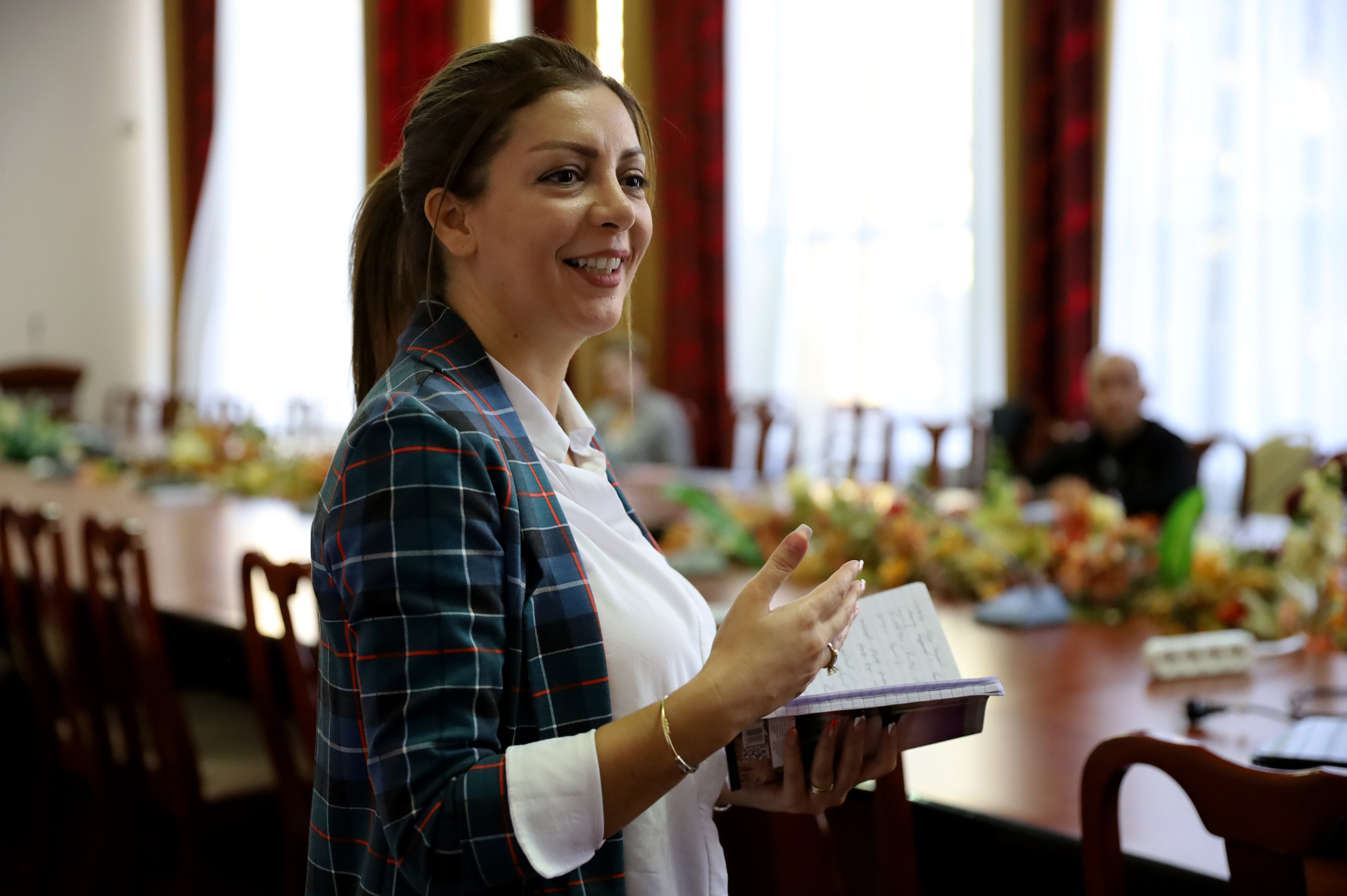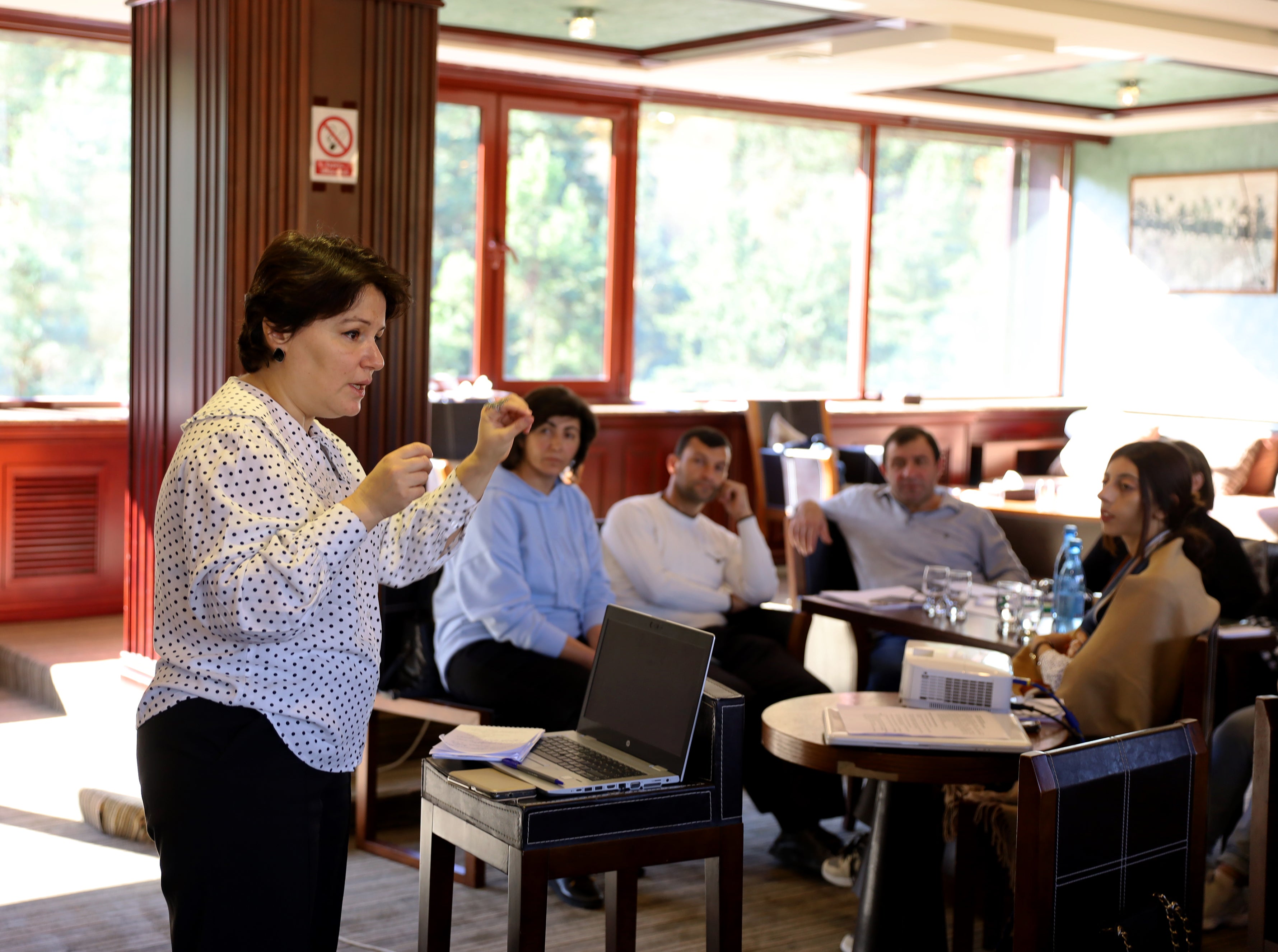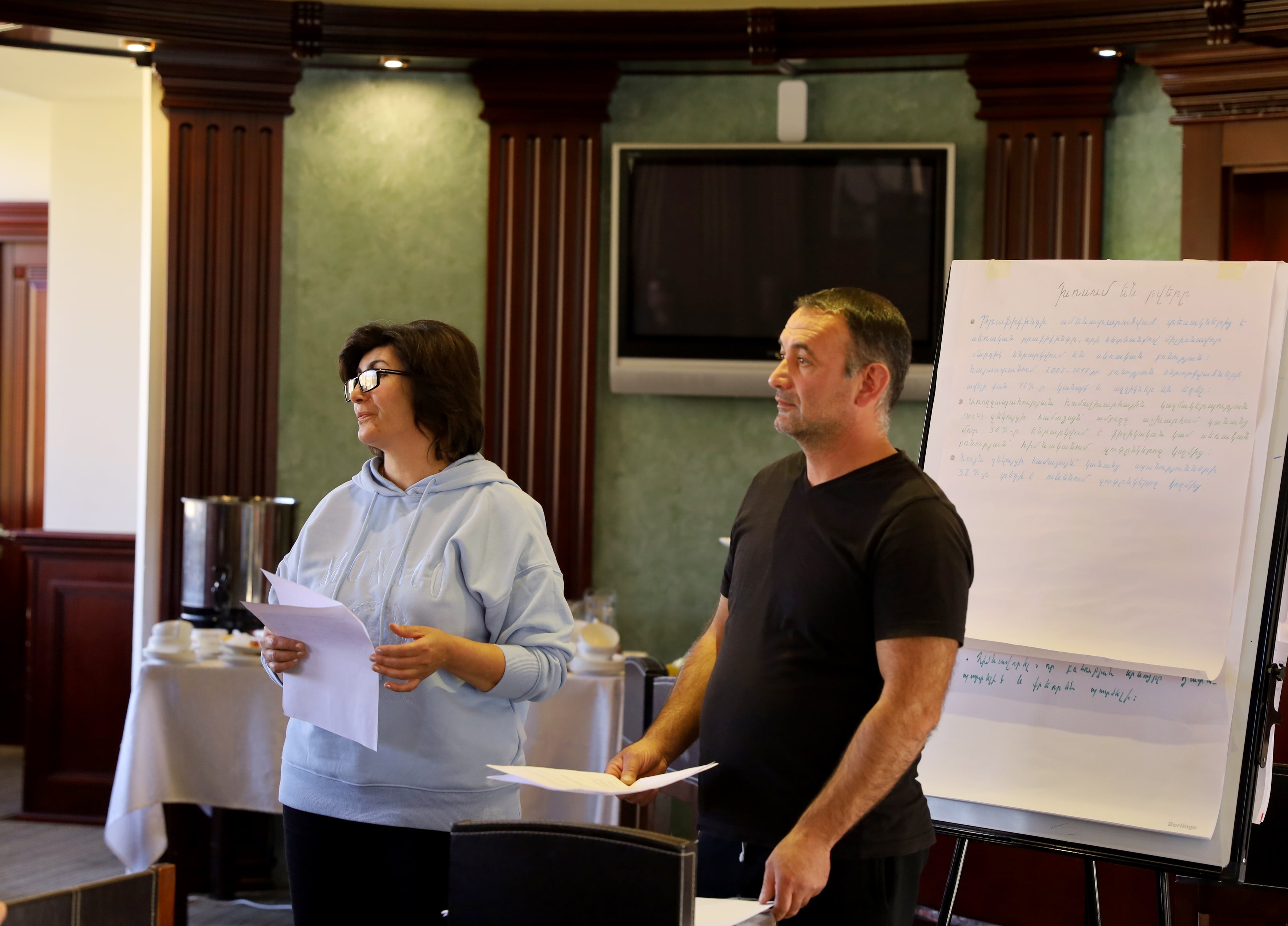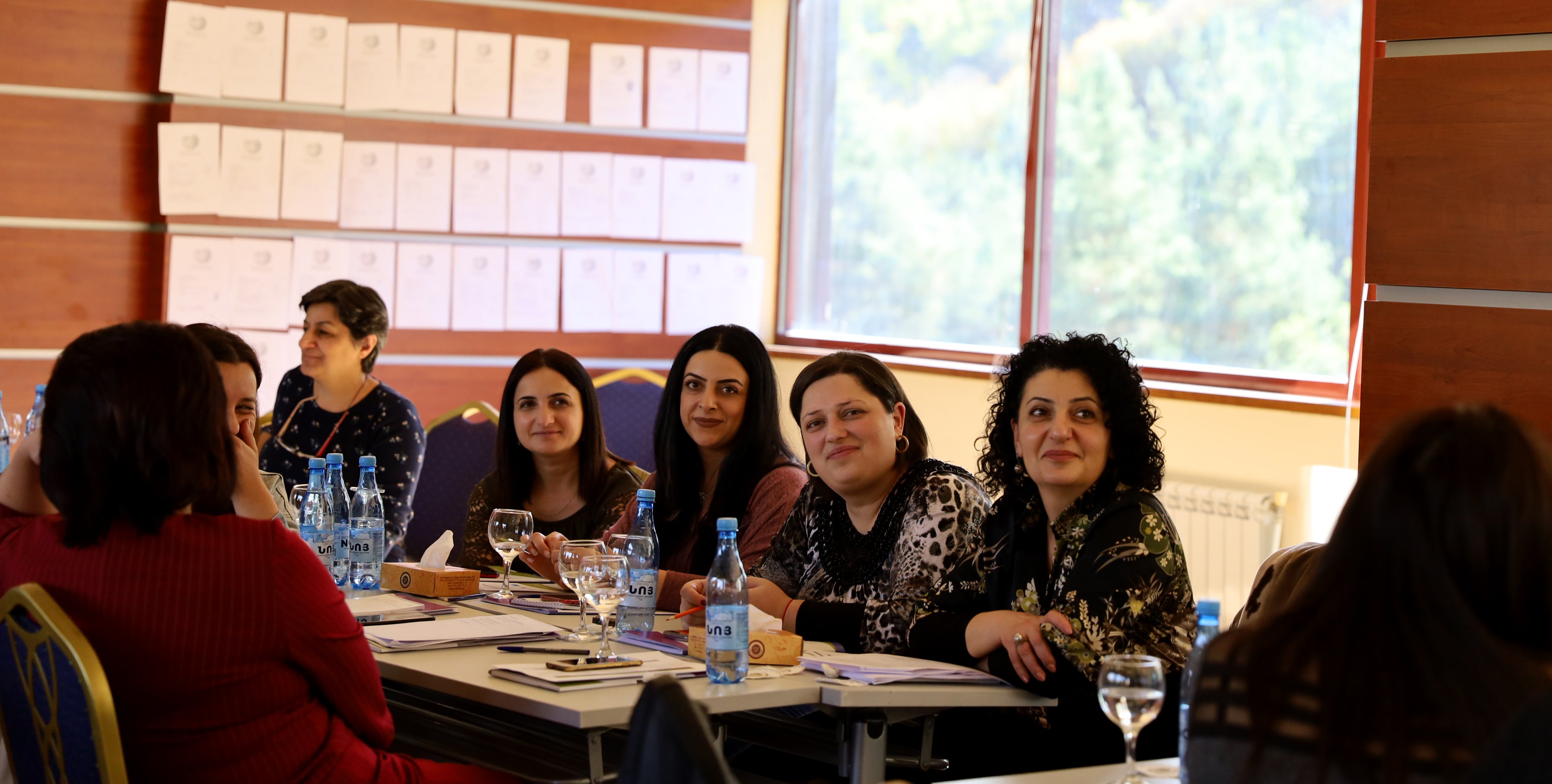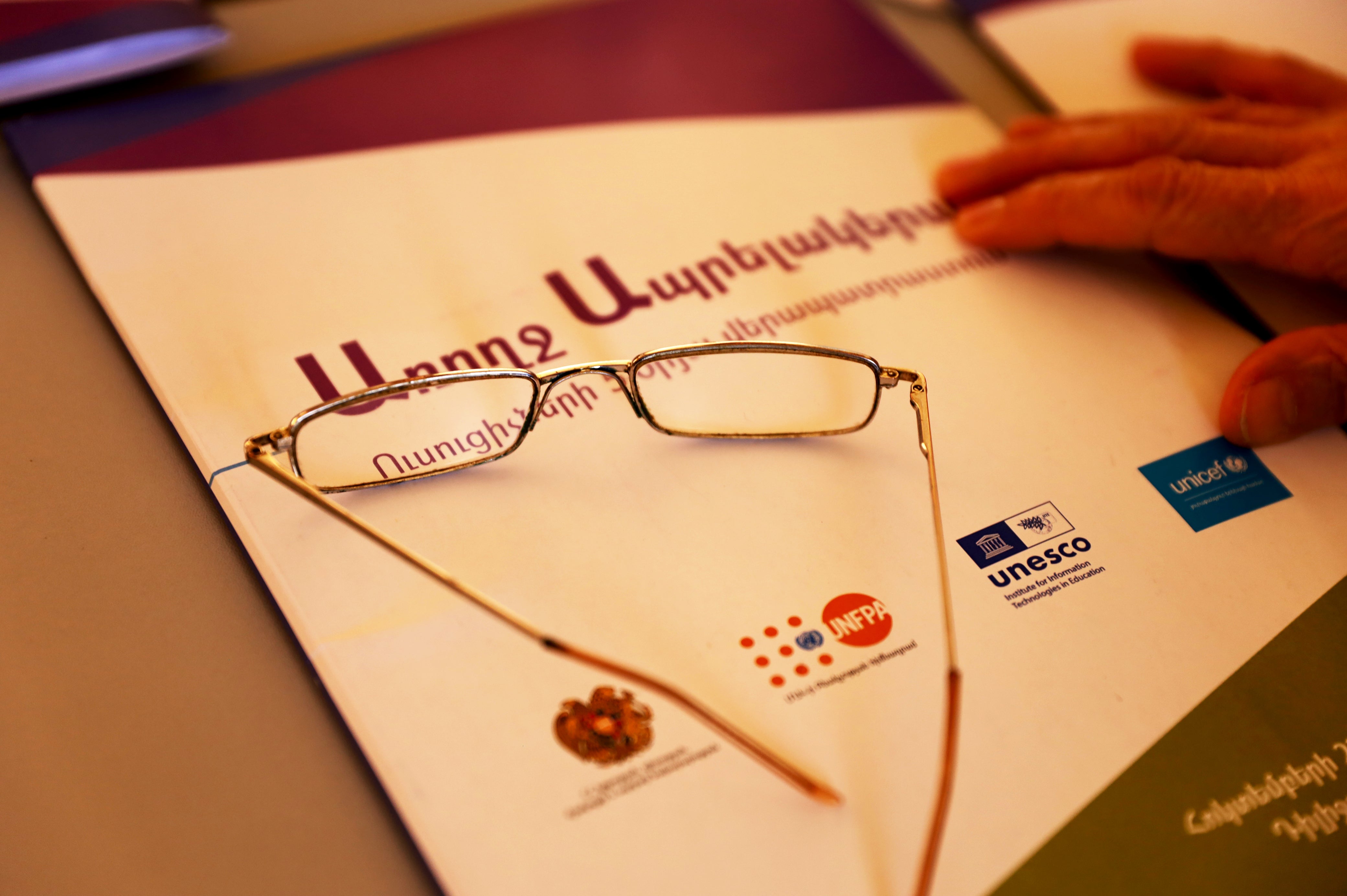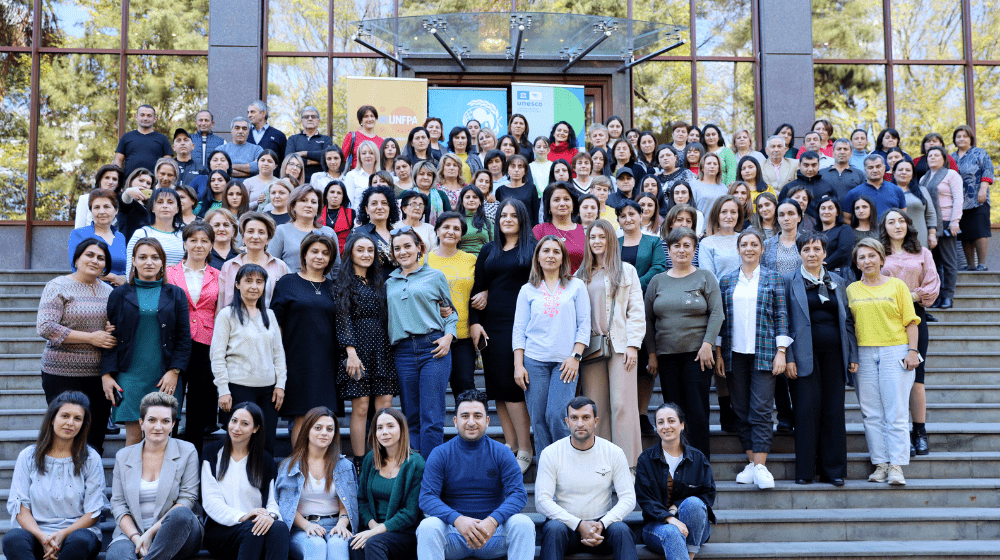
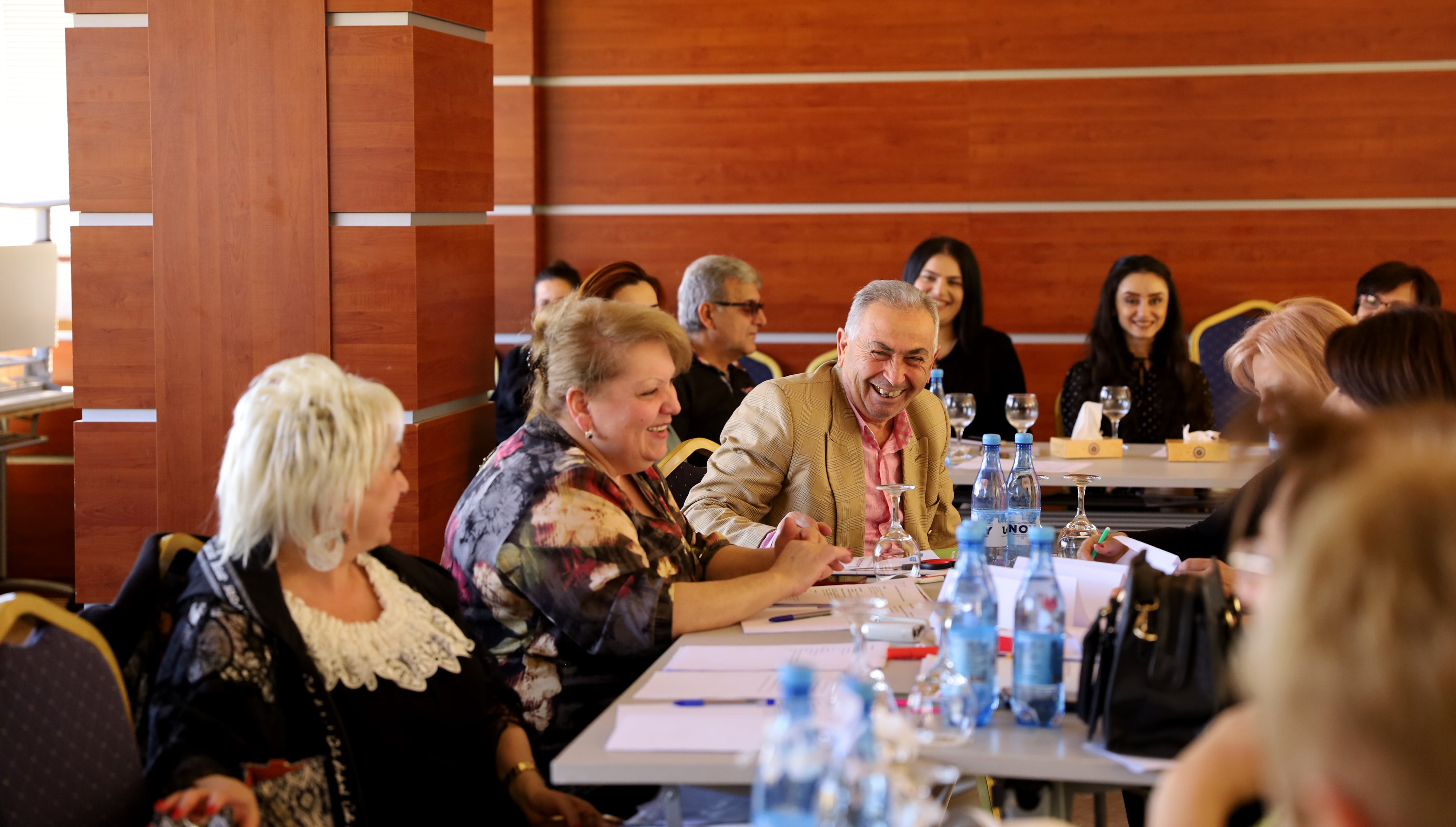
It is the 2nd year that the pilot of the Healthy Lifestyle curriculum is implemented in the Tavush region. In order to assess the effectiveness of the course monitoring was conducted in 34 schools observing 60 classes. Based on the findings, experts that were involved in the monitoring process, developed a teacher's manual for “Healthy Lifestyle” clubs in 6, 8, 9, and 11 grades.
"We all expect that as a result of the introduction and successful implementation of the Healthy Lifestyle clubs, students from 5 to 11 grades will acquire knowledge and skills on how to lead a healthy lifestyle,” says Anna Barfyan, UNFPA Youth Programme Analyst. “UNFPA, UNICEF and UNESCO, in partnership with the Ministry of Education, Science, Culture and Sport, recognize the importance of this initiative for Armenia’s development. For us, it’s an investment in the healthcare of our adolescents with a triple effect in the future. Firstly, it will contribute to children’s well-being. Secondly, it will leave a positive impact on their health, and, as future parents, it will affect the health of future generations. And the teachers that are involved in this program, have an important mission and role in this matter."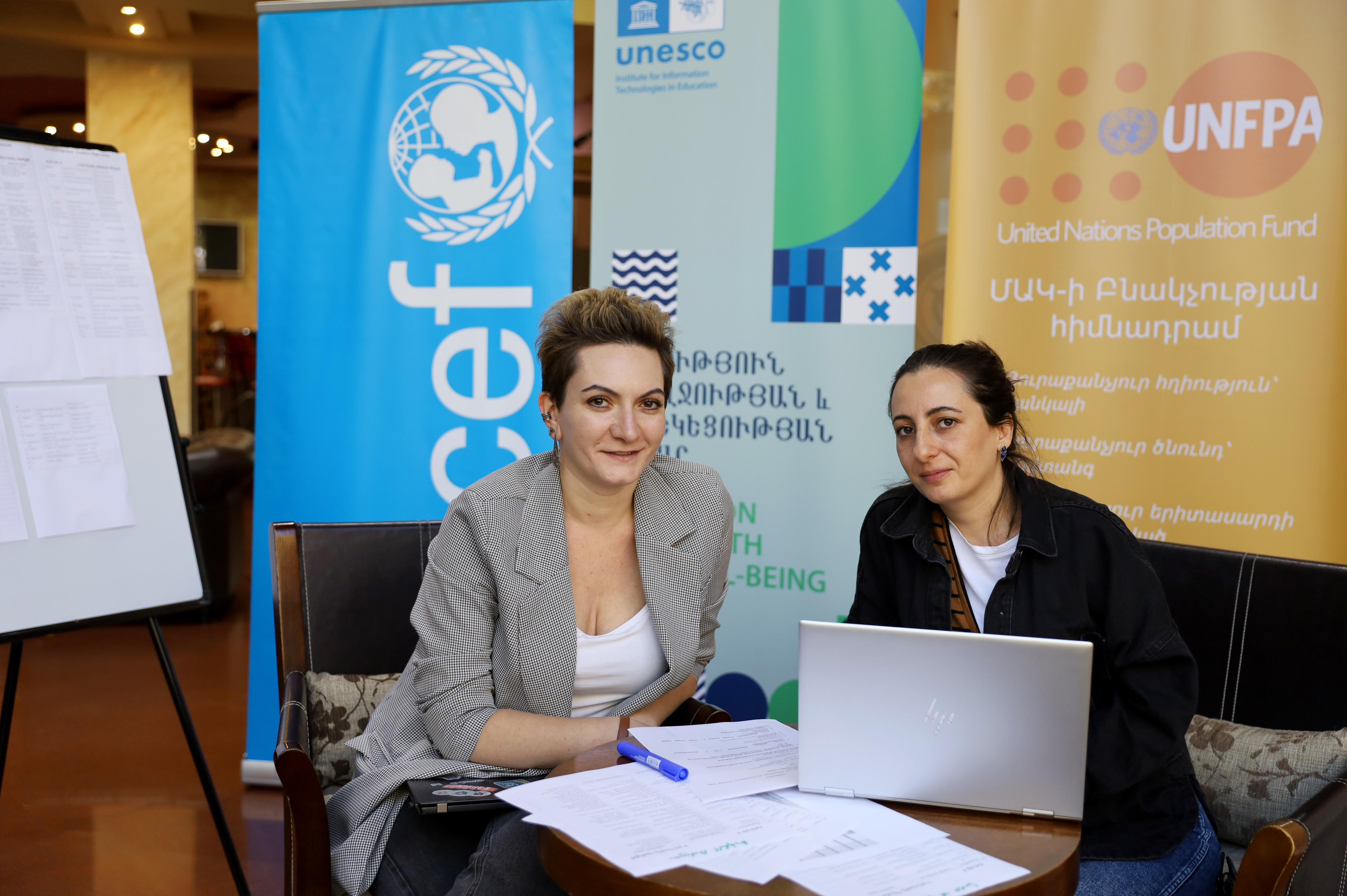
“The second decade of life is a time of transformation. During adolescence, girls and boys begin to interact with the world in new ways – taking chances, learning skills and experiencing unfamiliar emotions. They search for ways to stand out and belong, to find their place in society and make a difference in their world,” shares Hasmik Aleksanyan, UNICEF Adolescent Development Officer. “This rapid physical and cognitive development during adolescent years creates a critical window of opportunity, which is why it’s important for UNICEF that adolescents have the necessary information and knowledge to make informed decisions about their lives. Investing in adolescents is an investment in strong economies and inclusive communities.”
130 teachers from 75 schools (91% of schools operating in Tavush) accomplished the 5-days training course in October 2022, getting acquainted with the new methods on how to provide the subject, and getting the opportunity to design and run the classes jointly with other colleagues.
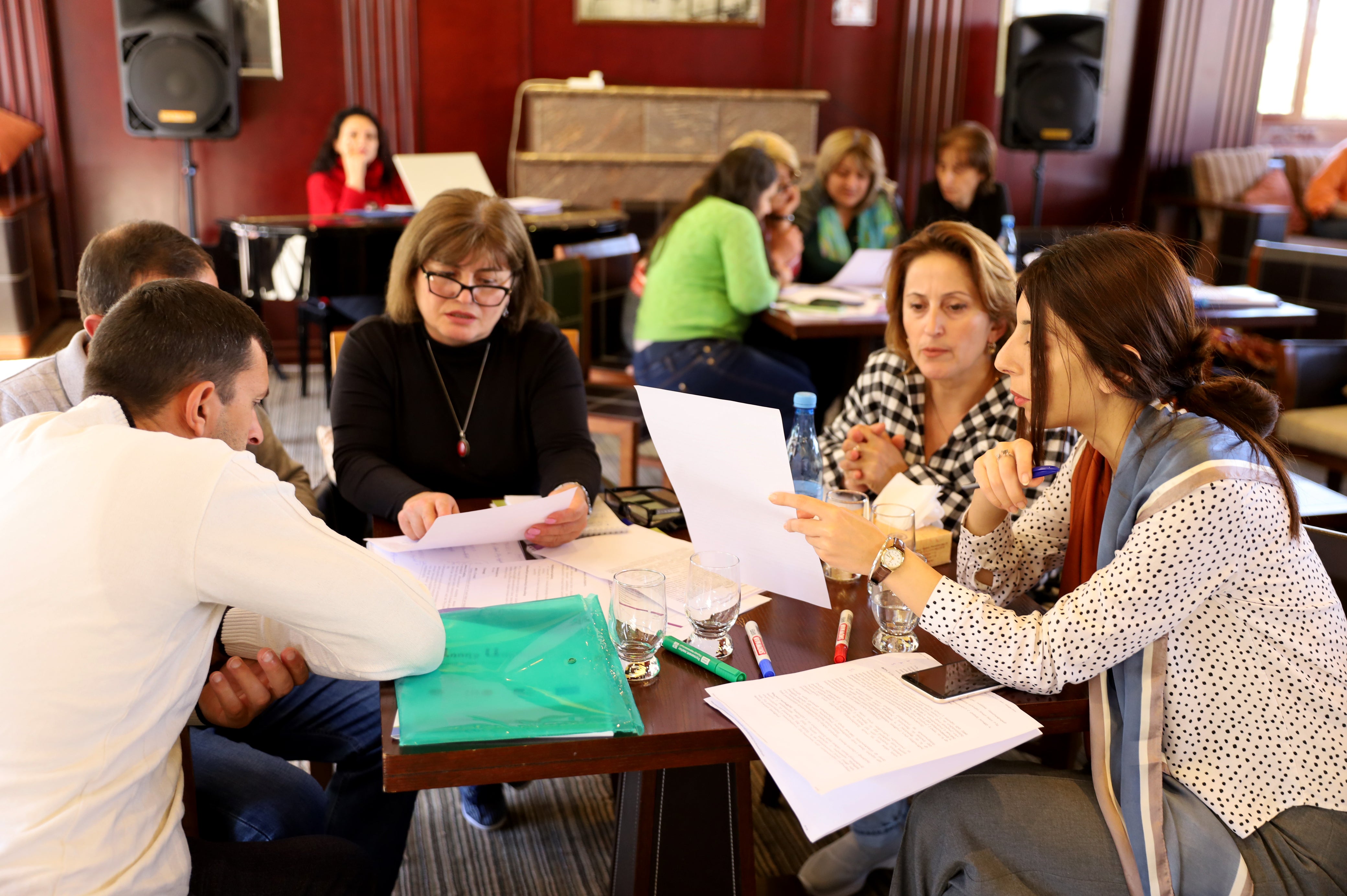
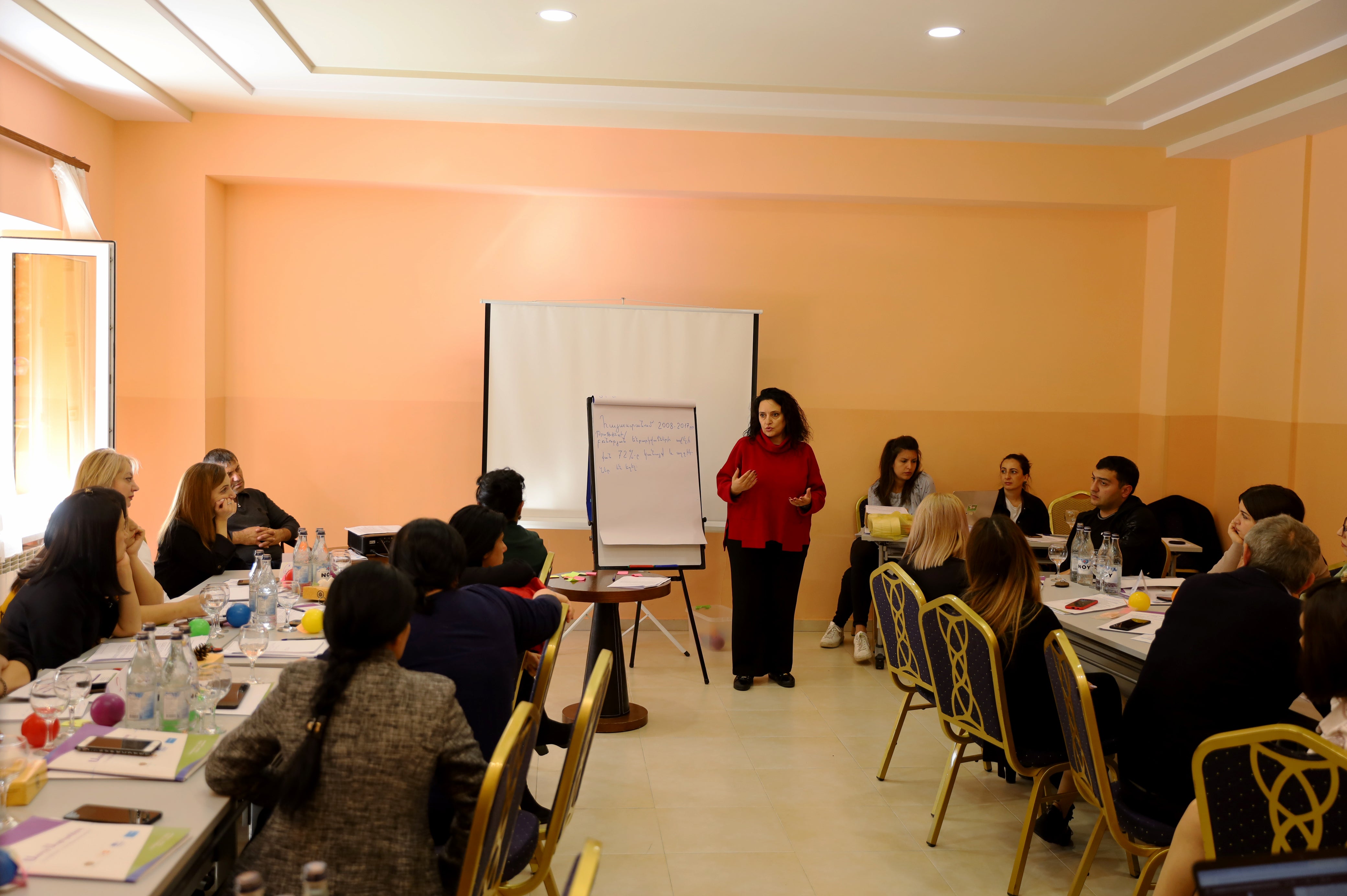
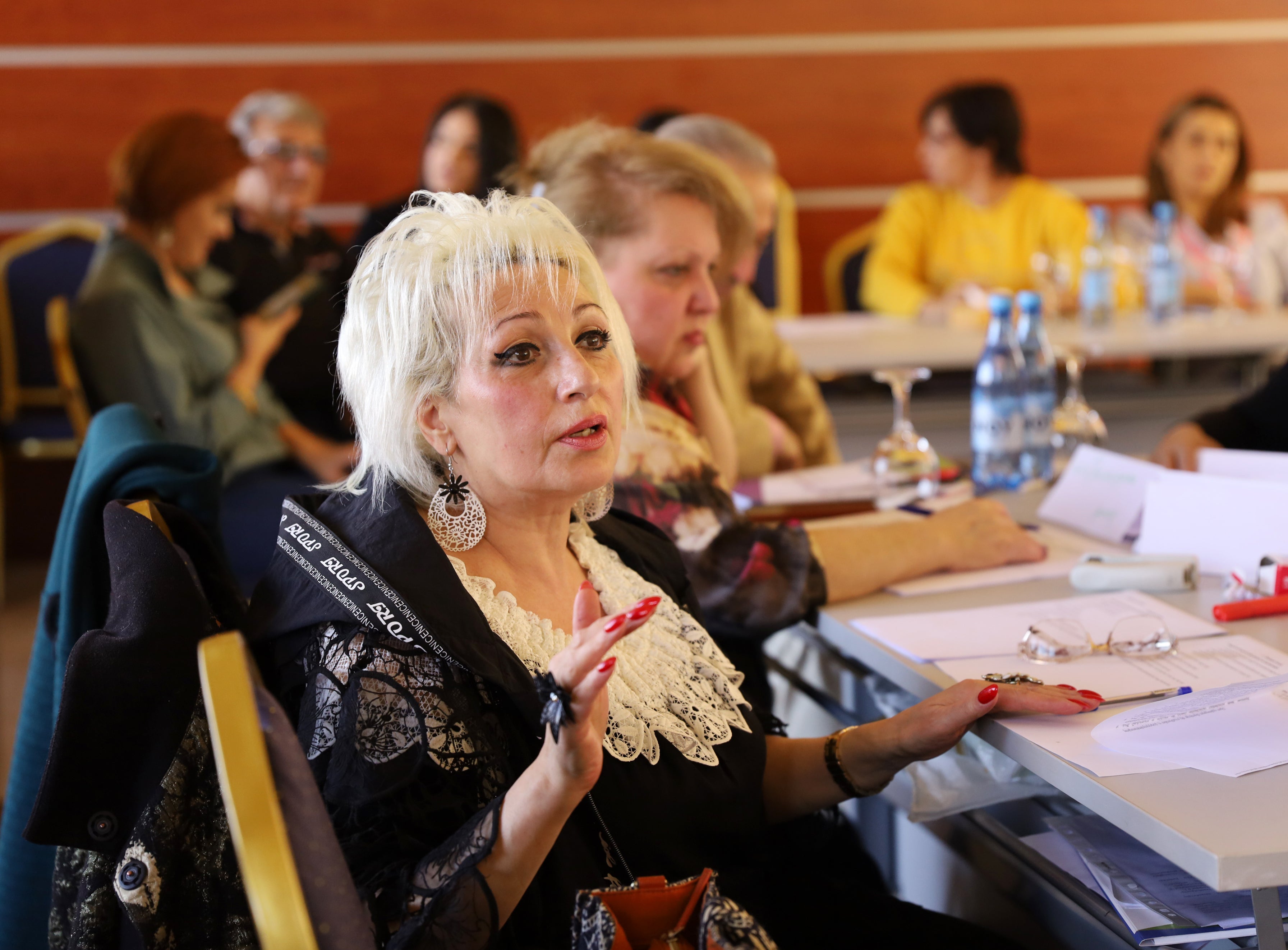
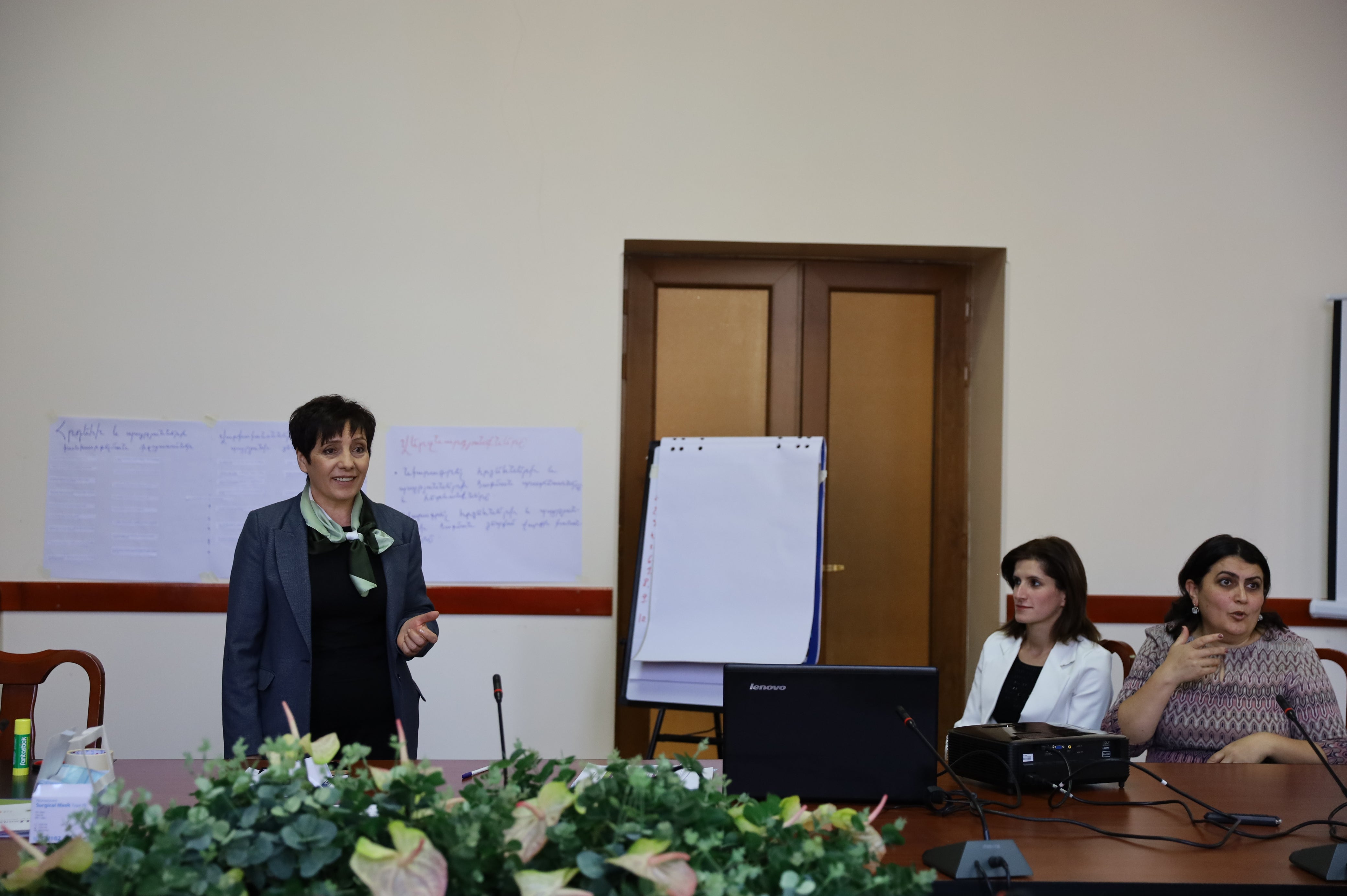
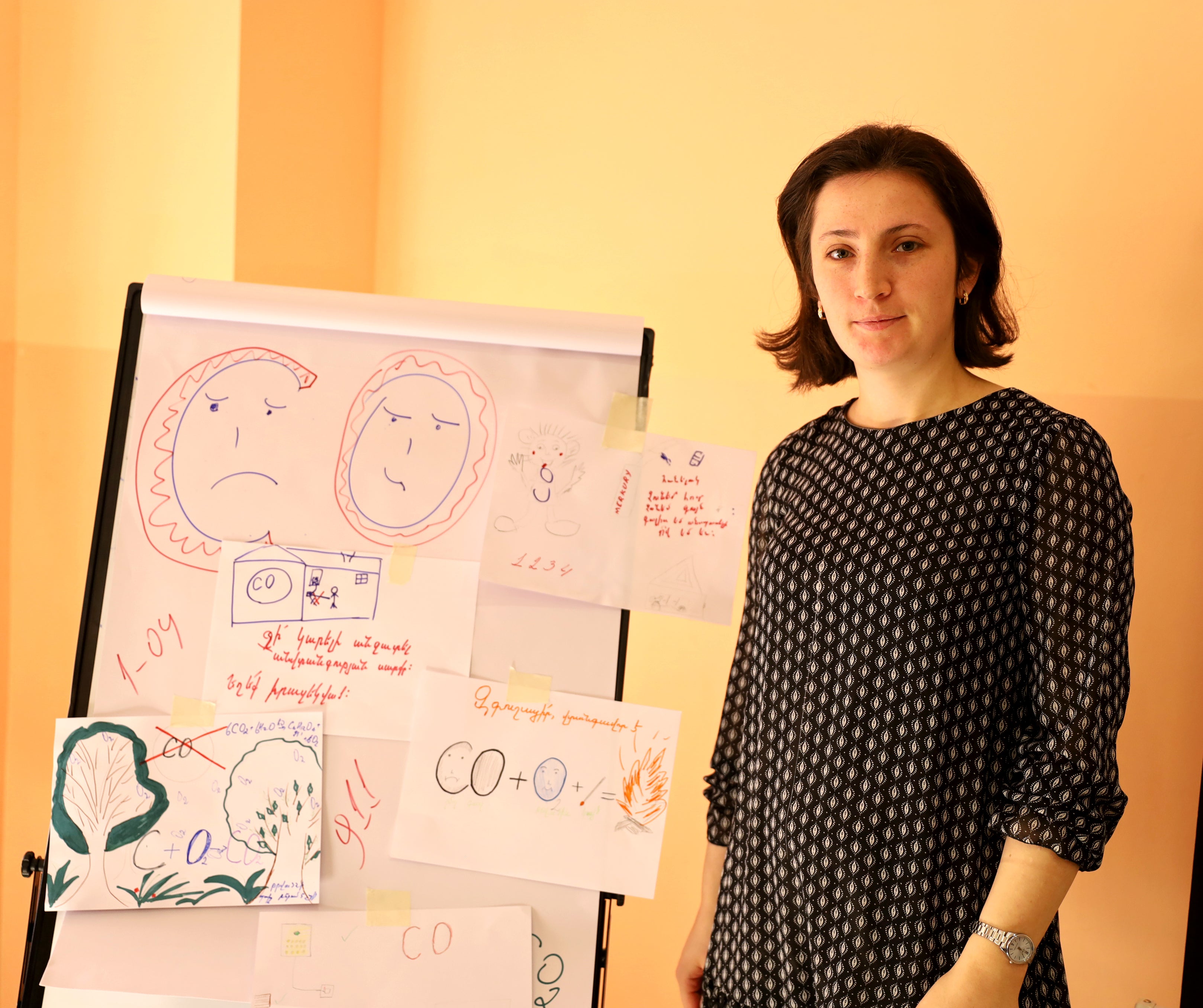
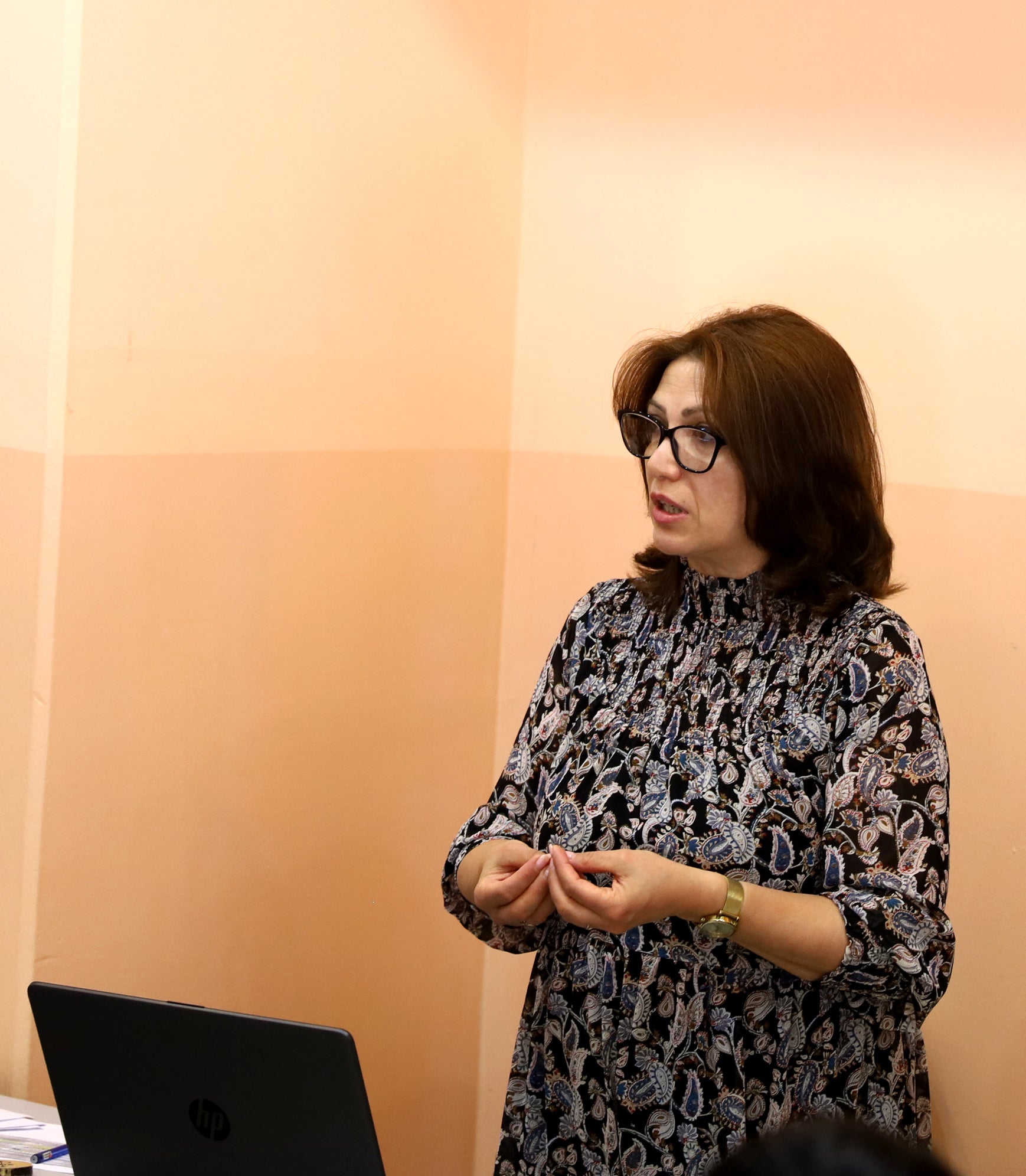
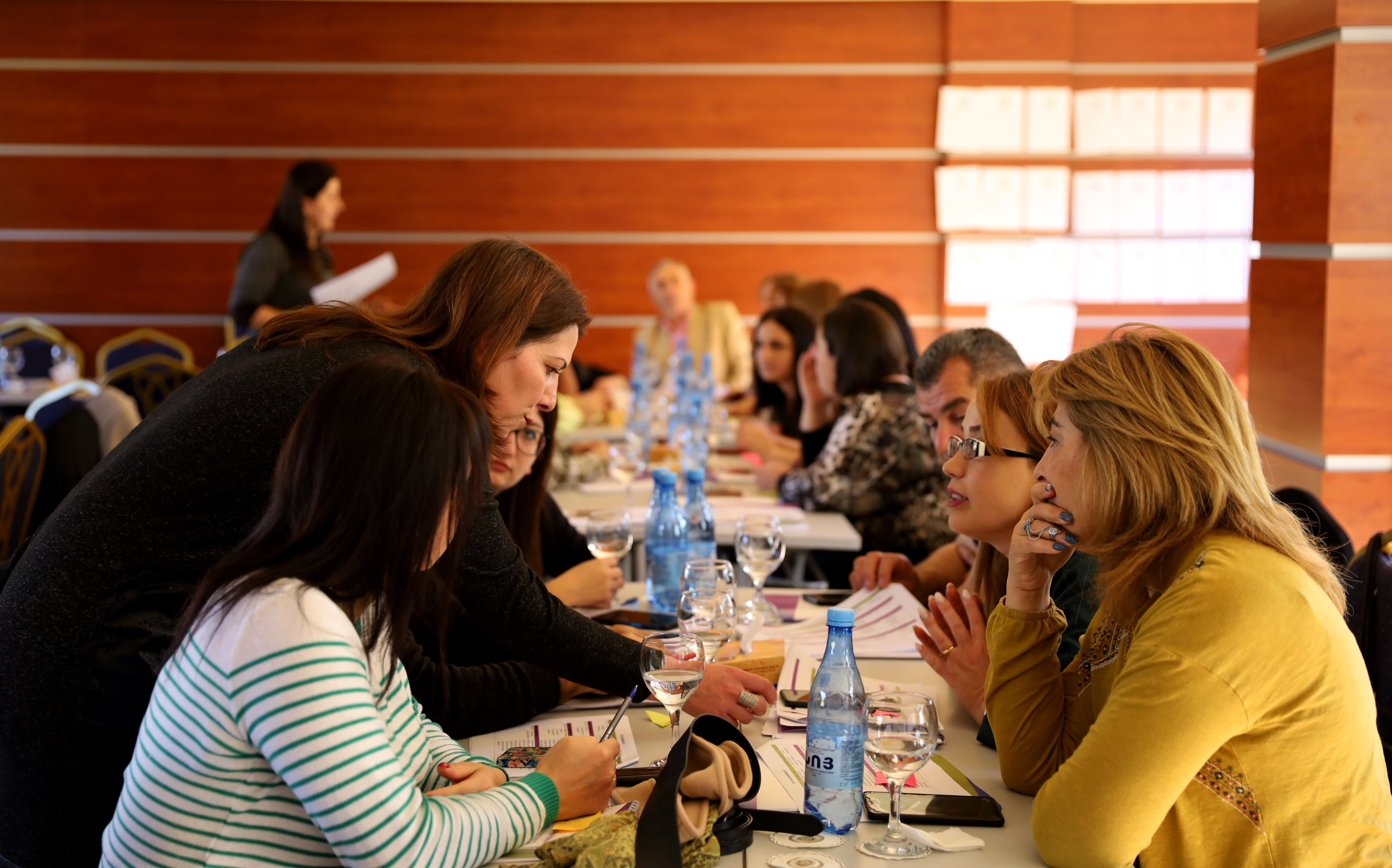
New teaching skills
- It is the second year that we are getting together with other teachers of Tavush region to further explore how to conduct the course, and we have already developed important relationships across communities. In terms of learning and information, this course is very effective. It is the second year that we are getting together with other teachers of Tavush region. In terms of learning and information, this course is very effective. This time we are going through new topics, learning how to effectively deliver them and find solutions to issues.
Narine Shagsuvaryan, Bagratashen Primary School No. 2
The subject is important for children's self-development
- This is the second year that I have been teaching the Healthy Lifestyle course. The topics are very important for children's self-development, especially taking into account the fact that they are chosen considering the peculiarities of that age group. Two of my 7th grade students approached me after a discussion around smoking in class, asking for additional materials to take home to show to their family members. After some time, they told me that they raised the issue with their family members, highlighting the negative economic and healthcare consequences of smoking and managed to convince their fathers to quit smoking.
Ani Melkumyan, Nerqin Tsaghkavan Secondary School
New skills to engage all students in the learning process
- I would like to highlight the role of group work in this course and during our own training sessions. We got acquainted with new teaching techniques on how to engage all students in the learning process. For example, today we were introduced to a new interactive game “Looking for a friend,” which gives students an opportunity to learn more about themselves, their value system and principles and through that try to understand their peers and make sense of the world around them.
Taron Babajanyan, Ptghavan Secondary school
I would like to see such a mutual assistance in all classes
- I teach in the fifth and seventh grades and there is interest in this course in all classes. It prepares students to make health and wellbeing related decisions more easily and informed in life. They learn to communicate, support and help each other, understand what a friendly attitude is, help people in difficult situations, empathize, and identify trustworthy people. The role of the family is also very important in this regard. We need to hold meetings with and seminars for caregivers so that instead of questioning or criticizing the topics in this course, they realize what problems we are trying to prevent, especially in this digital age. The key takeaway from this training for me is how to get ready for each lesson. We work in a team to get ready and I would have loved to see the same level of cooperation across all courses.
Armine Khachatryan, Verin Tsaghkavan Secondary school
A course about life
- I highly value that we have this subject at school, as it covers a number of vital fields and directions. This is a course about life and I’m sure the demand among the students will be high. We often teach students things that they will not readily apply in their in their everyday life. In this course, we teach things that may seem basic but will help each student to find his or her place in life in life, filling a void that was previously left open in the national curricula.
Arev Nersisyan, director of Berd school No. 3
The work with parents is very important
- At the initial stage of our work we faced certain constraints and confusion to talk about a range of topics with children in their puberty in a rural setting. So I decided to call for a parent-teacher meeting in all classes. I explained to them that we were going to have sessions on reproductive health and other topics and that their children may go home and share with them, so that they are not surprised or concerned. I explained that this course helps address issues that they may not be addressing as parents with their children, who especially in rural communities are usually more self-conscious and who may access information online without having necessary media literacy skills.
Lernik Safaryan, director of Ptghavan community school
Armenia is in the second year of piloting a Healthy Lifestyle course for middle school students. It’s a long overdue and long-awaited addition to the national curriculum, currently offered throughout middle school in Tavush region only, supported by UNFPA, UNICEF, and UNESCO.

